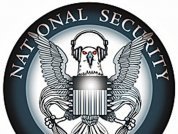
REUTERS/Chip East
Google founders Larry Page and Sergey Brin are recognized for their efforts at the conclusion of the Clinton Global Initiative in New York, September 22, 2006. Former US President Bill Clinton’s annual event brings together world leaders from business, government and philanthropy to try to solve world issues.
See Also



Thousands of companies work closely with U.S. national security agencies by swapping sensitive trade information for benefits including access to classified intelligence, four people familiar with the process told Michale Riley of Bloomberg.
The sources said the information is used not only to defend the nation but also to help the NSA hack the computers of U.S. adversaries.
The reports sheds light on the remarkably close relationship between private technology and finance companies and the government.
In exchange for their cooperation, leaders of companies are given classified information or warnings about threats that could affect their bottom line (such as serious cyebrattacks and who is behind them).
In one instance, according to one of the sources, Google co-founder Sergey Brin was given a temporary classified clearance to see highly sensitive government intelligence linking a cyberattack on the tech giant to a specific unit of China’s military.
The report raises questions about how much and what kind of information is given to the government by companies, especially in light of NSA whistleblower Edward Snowden’s revelation that the government gives America’s tech giants orders that “serve as one-time blanket approvals for data acquisition and surveillance on selected foreign targets for periods of as long as a year.”
One source said that U.S. telecoms voluntarily provide intelligence agencies with access to facilities and data offshore that would require a judge’s order if it were done in the U.S.
Riley writes that the extensive cooperation “is legal and reaches deeply into many aspects of everyday life,” but receives little scrutiny. The companies are reportedly guaranteed immunity from civil actions resulting from the exchanges.
Experts say that lawmakers seeking oversight over the highly-technical programs are in over their heads.
“That’s what makes this issue of oversight so challenging,” Jacob Olcott, a former cybersecurity assistant for Senator John D. Rockefeller IV (D-WV) and now a principal at Good Harbor Security Risk Management. “You have a situation where the technology and technical policy is far outpacing the background and expertise of most elected members of Congress or their staffs.”
SEE ALSO:
After Classified Briefing Lawmaker Says NSA Revelations Are Only ‘The Tip Of The Iceberg’
